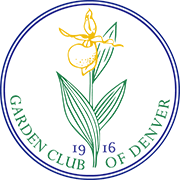“Sow More Good”
The Seed Savers Exchange is a national organization whose mission is to conserve and promote America’s culturally diverse but endangered garden and food crop heritage for future generations by collecting, growing, and sharing heirloom seeds and plants. Here are some tips from the Exchange.
Why Save Seeds?
- You save money.
- You help to preserve genetic diversity.
- You preserve flavor.
- You connect with your garden.
- You help to save the bees.
- You connect with community by sharing your seeds.
Six Tips for Saving Seeds
- Know your seed. Don’t save seeds from a hybrid variety (often labeled as “F1”) as descendants will not grow exactly true to the original plant.
- Save information, not just seed. It is important that you record the common and Latin names; planting dates, maturity and seed harvest; and any other relevant information.
- Watch for cross-pollination. Some plants can cross-pollinate which will pollute the descendants.
- Consider plant populations – numbers count. Collect seeds from a diverse population to avoid “in-breeding”.
- Choose ideal plants for ideal seed. Collect from only healthy and vigorous plants.
- Make your seed last. Know how to store seed that has been checked for pests and is mature and dry.
As a reminder, GCA is encouraging members to collect seeds and share with fellow GCA members. We are asked to bring seeds to the Shirley Meneice conference to exchange, so get collecting! Visit the GCA website and go to the Horticulture page “Seed Share”.
Important information:
- Please do not offer or request any seeds that are listed as invasive in their USDA zone of origin, your growing zone.
- Please do not plant any seeds that are invasive in the location where you are planting them.
- If you are uncertain, please check the national, state, and regional lists of invasives and noxious weeds on the following website:www.plants.usda.gov/java/noxiousDriver
- Please take a look at both the GCA website and the Seed Savers Exchange and help “Sow More Good”!
